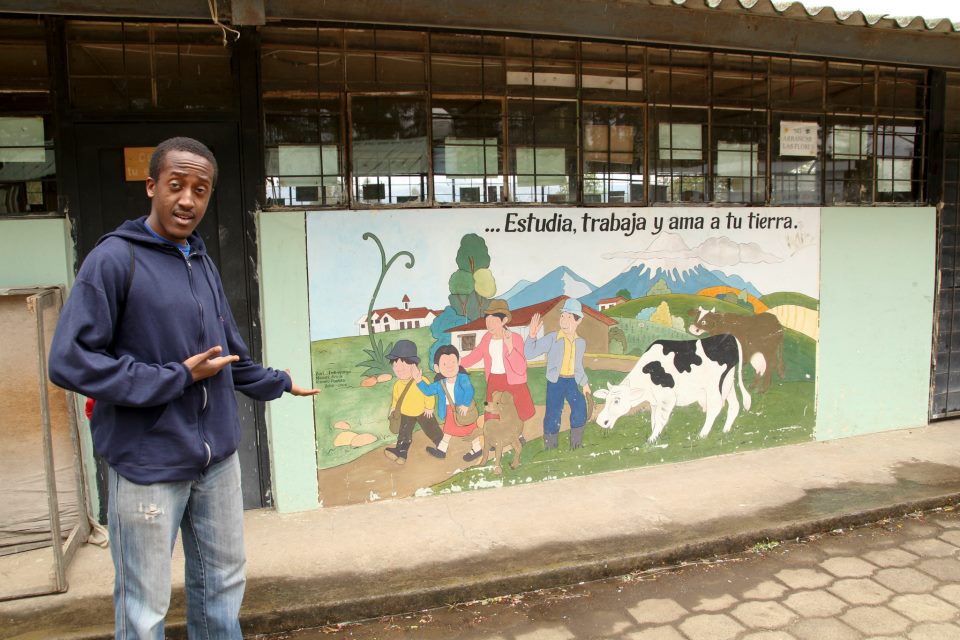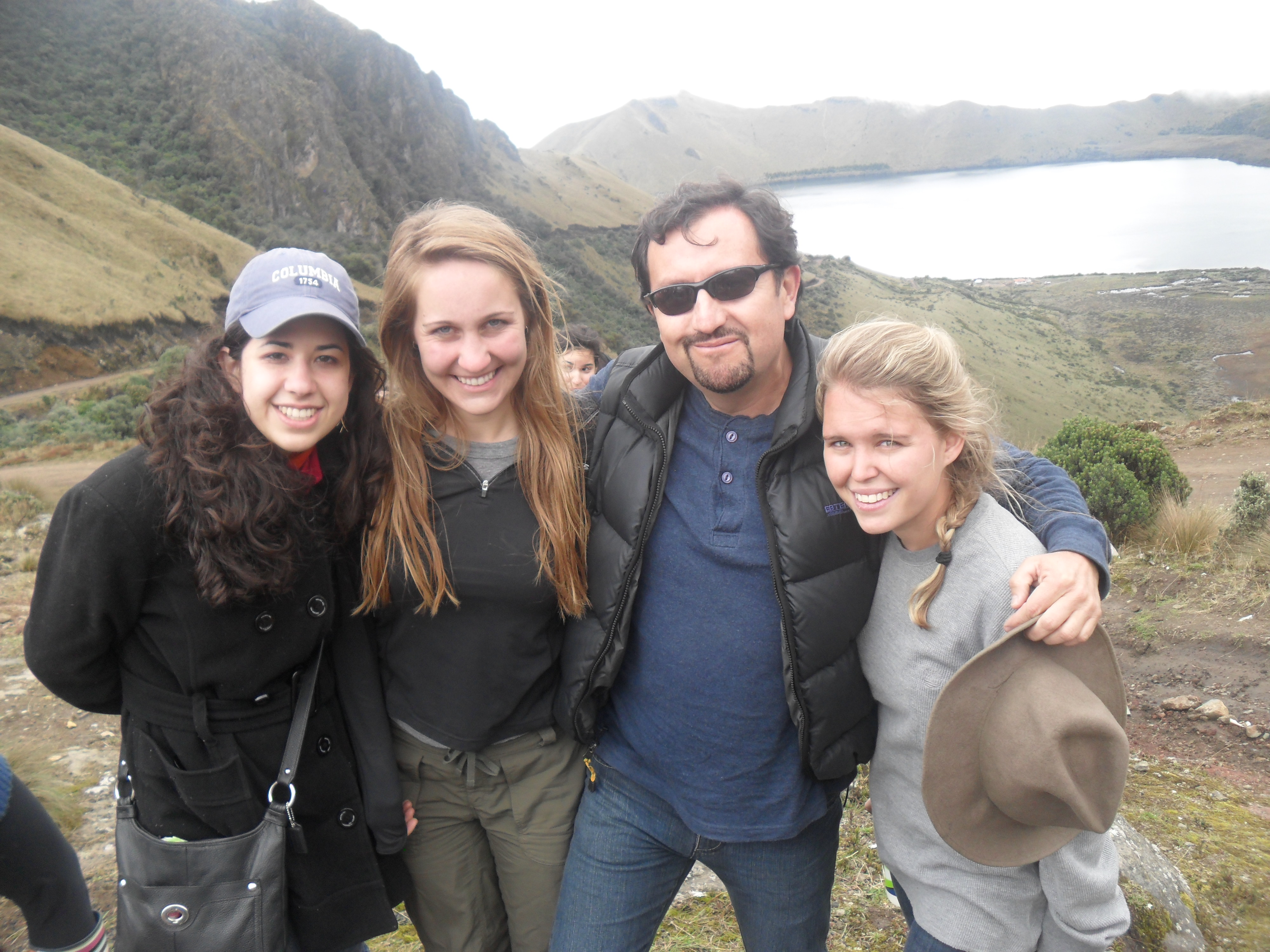In the spring of 2012, a group of Columbia undergraduate students took part in the Alternative Spring Break Program for Columbians Vested in Global Exchange for Positive Development. The GEQUA program offered students the opportunity to engage in a local gender equality project with Fundación Brethern y Unida, one of the oldest NGOs in Ecuador, which focuses on educating youth about sustainable development and the environment.
ISHR helped support select undergraduate students to participate in this program. Below, two of these students, Jessica Eaton and Christian Hubbard, reflect on their experience, and consider how their time in the field has altered their understanding of human rights and the environment.
Indigenous Rights, Women’s Rights and Organic Farming: Lessons learned in the back of a pick-up truck
By Christian Hubbard
Prior to going to Ecuador, if you would have asked me what corn and human rights have to do with each other, I definitely would have said nothing. But after my stay in Ecuador I now have a better understanding of how the treatment of the environment has a direct impact on human rights.

We stayed with La Fundación Brethen y Unida on their Hacienda in the small, rural town of Picalquí, Ecuador. We performed many tasks in their agricultural sector that ranged from collecting Choclo for later meals, to preparing plant beds for future crops – all the while meeting local leaders and discussing topics pertaining to indigenous and women’s rights.
My goal for the trip was to learn more about the day-to-day concerns of the average person in each area we visited, so I introduced myself and started chatting to some people in the back of the truck. I was expecting to discuss general information about people’s families, maybe their opinion of president Correa. But I heard stories that I didn’t expect to hear as well. One person in the truck talked about working on one of the various flower plantations, known as Floriculas, like many others in this region. The companies that own the plantations often make their workers perform difficult labor for long hours for a low income that is not equal to their labor. The companies also use chemicals to grow the flowers, which are dangerous for humans and often cause the workers a great deal of health problems after a few years. In some cases, these health problems caused the deaths of relatively young and previously healthy people. This person got sick after working on the Floricula for a while, and had to leave the plantation due to poor health. Hearing this story not only put a human face on the problem, but made it personal to me

Intersectionality in Ecuador
By Jessica Eaton
The goal of our alternative spring break trip to Ecuador was to promote women’s rights and gender equality, and to learn simultaneously from local Ecuadorian women about their perspective on rights and equality in this realm, and to initiate a continuous and sustainable dialogue.
The trip was organized under a responsible and sustainable service model, so were required to lead pre-departure planning meetings to ensure that our trip was as successful and productive as possible. This effort was in part to prepare us for the distant and unfamiliar environment in which we would spend two weeks living, learning, and working. During these meetings, discussions covered topics ranging from Ecuadorian politics to urban poverty, from creative fundraising techniques to the South American economic situation.

With two months of planning and preparation, we were confident that we would be able to approach the challenges on the ground in a knowledgeable and mature manner. We believed we had the tools to tackle these complex topics of gender dynamics and the ability to facilitate creative and valuable conversations. However, we could not have anticipated the remarkably interconnected nature of the issues we were confronted with.
We realized in the first few days what we had not understood in two months of preparation, that gender roles and women’s rights in Ecuador are intricately and inextricably connected to the land, agriculture, indigenous rights, conflict, political climate, and the economy. It became clear that it was impossible and unproductive to consider the topic of women and gender without thinking about topics like minority rights and rural agricultural practices.
After a few personal interactions with the Ecuadorian women, it was obvious that we would need to take a more holistic approach to the topic of rights, and that we needed to see issues in context with each other. Successes and failures in one area could provide crucial insight into dealing with others, and in order to be effective in our work we needed to bare the interconnected nature of these topics in mind.
This realization made me really appreciate the value of travel. That living an issue can teach you lessons and make connections that no amount of research can replace. My experience in Ecuador exposed me to the importance of intersectionality of rights and how essential it is to supplement theory with practice, research with travel, and planning with real conversations if we want to truly understand foreign issues in foreign places.
To lean more about the work of FBU, check out this clip:
[youtube]http://www.youtube.com/watch?v=VhuV3nDUcoI[/youtube]
